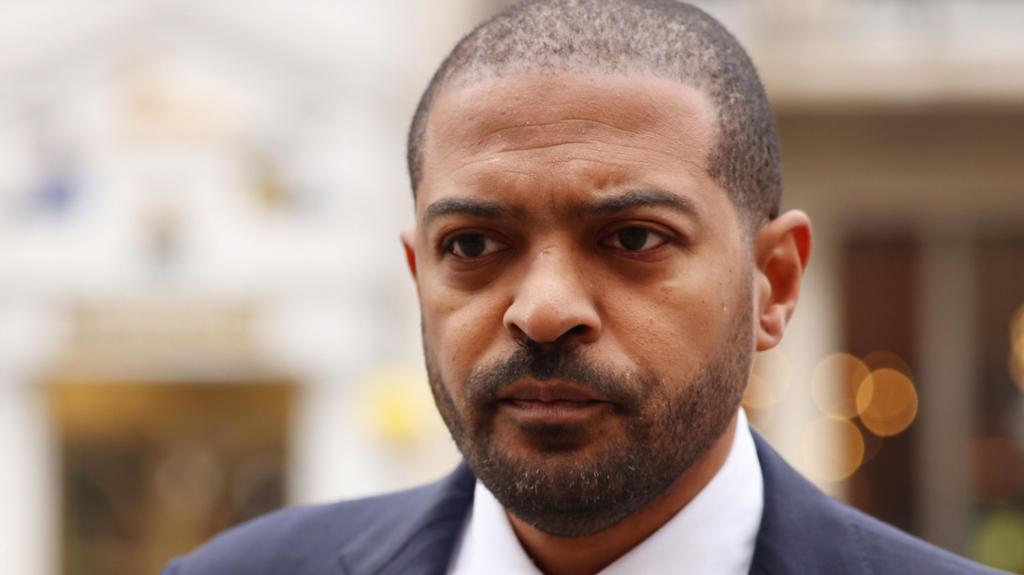Actor Noel Clarke has lost his libel case against the Guardian, after he sued the newspaper’s publisher for printing allegations of sexual misconduct.
The actor, known for roles in Doctor Who and Kidulthood, brought legal action against Guardian News and Media (GNM) following a series of articles published in 2021. The articles alleged that Clarke had used his position within the film and television industry to prey upon and harass women.
On Friday, the judge dismissed Clarke’s libel claim, ruling that the Guardian had successfully defended its reporting on the grounds of truth and public interest.
The Guardian’s editor-in-chief has welcomed the decision, calling it “a deserved victory for those women who suffered” and a “landmark for investigative journalism”.
Clarke issued a statement describing the judgement as “disappointing”, adding, “I have never claimed to be perfect. But I am not the person described in these articles.”
The judgement found the meaning of each of the newspaper’s articles was “substantially true”.
Mrs Justice Steyn stated, “I have accepted some of Mr Clarke’s evidence… but overall I find that he was not a credible or reliable witness.”
During the High Court defamation trial, Clarke’s legal representatives argued that accusations of him being a “serial abuser of women” were false and that he was the victim of an “unlawful conspiracy.”
The Guardian maintained that its reporting was the result of a “careful and thorough investigation conducted conscientiously” by its journalists.
Over the course of the six-week trial, which involved Clarke suing the publisher over seven articles and a podcast, more than a dozen women testified to experiencing misconduct by the actor and director.
Clarke, 49, testified for over three days, denying any sexually inappropriate behavior toward the women.
The judge dismissed Clarke’s conspiracy claim as lacking a “proper foundation,” suggesting it arose “born of necessity, in the face of the large body of witnesses giving evidence against him”.
“There has been no conspiracy to lie,” she stated. “In the absence of a conspiracy, Mr Clarke’s case that more than 20 witnesses – none of whom are parties or have a stake in this case, as he does – have come to court to lie is inherently implausible.”
The judgement noted that “women have been speaking about their experiences of working with Mr Clarke for many years”.
It stated that Bafta’s announcement in March 2021 that Clarke would receive an award “triggered those who were concerned about his behaviour to act, out of concern that it would enhance his power within the industry and so enable him to continue misbehaving”.
The judge also concluded that the Guardian’s editor-in-chief, Katharine Viner, along with other editors and reporters, held a reasonable belief that publication was in the public interest.
In a statement released following the judgement, Viner said it was “important to fight this case”.
“This was a deeply-researched investigation by some of the Guardian’s best reporters, who worked diligently and responsibly,” she said. “The judgement is clear that our investigation was thorough and fair, a template for public interest journalism.”
She added: “Going to court is difficult and stressful, yet more than 20 women agreed to testify in the High Court, refusing to be bullied or intimidated.
“I hope today will give encouragement to other women in similar situations who have been too fearful to raise their voices for fear of the consequences.”
Responding to the judgement, Clarke stated: “For almost five years, I have fought against a powerful media outlet and its extensive legal teams over inaccurate and damaging reporting.”
“These stories started via anonymous emails portraying me as a monster to attract attention and outrage. The goal was to damage my career, and they succeeded.”
“I have never claimed to be perfect. But I am not the person described in these articles. Overnight I lost everything, the media outlet didn’t just ruin my life they ripped through my family’s also.”
Clarke thanked “the team who stood beside me throughout”, as well as his family, “who never stopped believing there was something worth fighting for”.
“The decision today does not change the fact that inaccuracies were published,” he said. “While they may have won in court, they have lost the trust that journalism depends on.”
“I want to thank the witnesses who confirmed that key elements of the reporting were false.”
In her judgement, Mrs Justice Steyn rejected an allegation of groping and accepted Clarke’s evidence that nude photographs given in evidence were taken with the consent of the woman involved.
The judge also accepted that an improvisation exercise in an acting class led by Clarke in which some actors undressed was not set “for his own sexual gratification,” adding that, although he found actors’ objections to nudity vexing, his aim was to help students become comfortable with appearing partially nude for roles which may require it.
Clarke gained prominence for his role as Mickey Smith in Doctor Who during the Christopher Eccleston and David Tennant eras, from 2005 to 2010. He also appeared in major films, including Star Trek Into Darkness.
As an actor, writer, and director, he became an influential figure in the British film industry, particularly for his work on the ‘hood’ film series: Kidulthood, Adulthood, and Brotherhood.
In 2009, he received the Rising Star award at the Bafta Film Awards. In 2021, he was awarded Bafta’s Outstanding British Contribution to Cinema honor, which, along with his Bafta membership, was suspended following the publication of the Guardian’s allegations.
The Scottish actress will star alongside former Superman actor Henry Cavill in a reboot of the classic 80s movie.
The US actress says life is “a daily struggle”, seven months after husband Jeff Baena’s suicide.
Olivia Maiden, who lost siblings at a young age, says film-making helps her to process their deaths.
The Oscar-winning actor says that the famous 007 character can’t be a woman as it “just doesn’t work”.
Rajinikanth debuted in 1975. His 171st film Coolie released on 14 August mirrors his five-decade journey.

